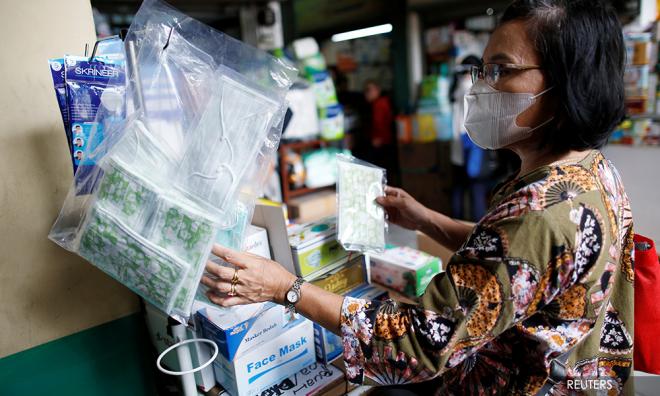
Published by Malay Mail & New Straits Times, image from Malay Mail.
Climate change is likely to be the greatest threat of our century. Our planet is heating up, glaciers are melting and sea levels are rising.
Climate change is a significant variation of average weather condition, for example, the earth becomes warmer, wetter, or drier over several decades or more. The earth’s climate is now changing quicker than at any rate in the history of modern civilisation.
A report from the Intergovernmental Panel on Climate Change in 2018 shows that the world has until 2030 to implement “rapid and far-reaching” changes to our energy, infrastructure and industrial systems to avoid a 2 degrees Celsius of warming ― which could be disastrous.
In a nutshell, this temperature rise is called global warming.
It happens when carbon dioxide (CO2) and other air pollutants are released into the air and they absorb the sun’s warmth and keeps heat in our atmosphere.
Normally, this radiation would escape into space but these pollutants trap the heat and cause the planet to get hotter. That is what is known as the greenhouse effect.
The world’s top climate scientists believe that human activities are responsible for the escalation of greenhouse gases in the atmosphere over the last 150 years. The largest source of greenhouse gas emissions from human activities is from burning fossil fuels for electricity and transportation, which makes up 82 per cent of the gases in our atmosphere that trap heat.
The effects of greenhouse gas emissions include the rising of temperatures, heat waves, drought, higher sea levels, abnormal weather patterns, increased intensity of natural disasters as well as smog and acid rain.
While some claim that greenhouse effect is a natural phenomenon and it is necessary for survival on earth, experts point out that the amount of gases trapped in the atmosphere has risen steeply in recent history.
There is no magic bullet to address climate change, as it requires many solutions. Almost all the solutions that exist till today hinge on the way human behave, shifting the way human make and consume energy.
While it is impossible to inverse the effects of climate change, we, as the citizens, should put our heads together to help reduce climate change.
What can we do, as the living soul on earth?
Use energy wisely
After all, electricity allows us to light up our homes without the need for candles, let us watch television, and even charge or power the computer and smartphone.
While electricity does have its advantages, there are also some disadvantages.
As there is a direct connection between the energy used and the environment, consuming less power could reduce the amount of electricity that power plants have to make, subsequently reducing the number of fossil fuels that are burned each day.
Thus, it is crucial for us to unplug or shut down all the electrical devices that are not in use.
Due to the frequent heat waves, the usage of the air conditioner has ascended, as it improves both living conditions and economic productivity. But, do you know that the instant relief that the air conditioner offers us is offset by its harmful environmental effects?
Studies show that air conditioner denotes an increasingly large percentage of energy consumption in the building sector. It is responsible for 12 per cent of the sector’s CO2 emissions worldwide.
One of the energy efficiency tips shared by Tenaga Nasional Bhd is to set our air conditioner between 23°C and 25°C as this is cool enough and reduces energy consumption. Plus, we must ensure that the filters on the air conditioner are regularly checked and replaced. Cleaning a dirty air filter can save several pounds of carbon dioxide a year and let us breathe the clean air too.
With these tips, not only it conserves the earth’s natural resources and shields the ecosystems from destruction, but we also could save more by paying less for the electricity bills.
Practise recycling
Recycling is perhaps one of the easiest yet most effective ways to make our planet greener and healthier place to live. There are myriad of initiatives set up across the world to reuse and recycle just about everything, not to mention everyday products such as plastic bottle, can and newspaper.
Recycling can be started small at home and it does not require much effort if we spend some time to create a comprehensive recycling system. This system starts with having places to store the recycled materials in the house, whether this is a box, bin or bag.
Keep the recycling container next to the trash can and remind everyone at home to recycle as much as possible.
One of the main key benefits of recycling our waste is, it reduces the landfill waste.
In 2018, Malaysians generated a whopping 38,142 tonnes of waste per day, an increase from 19,000 tonnes of waste a day in 2005. Out of this, 44.5 per cent of the waste collected was food waste, followed by plastic waste (13.2 per cent) and diapers (12.1 per cent).
Decomposing these huge wastes release methane, a greenhouse gas which is significantly more harmful than CO2 that can cause nausea, headaches and vomiting among those who encounter high levels of it. Therefore, with recycling, we limit our contributions to landfill and help to reduce methane production.
Less driving
It is time where we fully utilise our public transportation especially hydrogen-powered buses, carpooling or walking. Technically, with this mode of transportations, there will be fewer emissions of CO2 and thus, fight global warming.
It is our responsibility to use our planet’s resources aptly for the next generation to be able to survive. Hence, we should consider all the available knowledge about sustainability and best practices to make our planet healthier again and apply them in our daily lives.
Every little bit we do helps to save our planet.
Nurafifah Mohammad Suhaimi is Research Assistant at EMIR Research, an independent think tank focused on strategic policy recommendations based on rigorous research.
Diterbitkan oleh EMIR Research.
Perubahan iklim merupakan salah satu ancaman terbesar pada abad ini. Bumi kita semakin panas, glasier atau sungai ais mencair dan paras laut semakin meningkat.
Satu laporan Panel Antara Kerajaan mengenai Perubahan Iklim pada 2018 menunjukkan bahawa kita mempunyai masa sehingga 2030 sahaja untuk melaksanakan perubahan “pantas dan meluas” kepada sistem-sistem tenaga, infrastruktur dan perindustrian dunia bagi mengelakkan peningkatan suhu sebanyak 2° Celsius – yang akan membawa kepada malapetaka besar.
Fenomena ini digelar pemanasan global dan berlaku apabila karbon dioksida (CO2) serta bahan pencemar lain dilepaskan ke udara dan menyerap kehangatan haba matahari melalui proses radiasi.
Biasanya, radiasi ini dengan sendirinya lenyap di ruang angkasa tetapi molekul daripada bahan tersebut memerangkap haba dan menyebabkan bumi menjadi semakin panas. Inilah yang dikenali sebagai kesan rumah hijau.
Saintis iklim terkemuka di dunia percaya kegiatan manusia adalah punca peningkatan gas rumah hijau sejak 150 tahun yang lalu. Sumber terbesar pengeluaran gas rumah hijau adalah daripada pembakaran bahan api fosil untuk kuasa elektrik dan pengangkutan, yang membentuk 82% gas rumah hijau kaca di ruang atmosfera.
Kesan pelepasan gas rumah hijau adalah kenaikan suhu, gelombang haba, kemarau, paras laut yang lebih tinggi, corak cuaca yang tidak normal, peningkatan bencana alam serta hujan asap dan asid.
Walaupun sesetengah mengatakan bahawa kesan rumah hijau adalah fenomena semula jadi bumi, pakar mengesahkan bahawa jumlah gas yang terperangkap di atmosfera telah meningkat dengan mendadak pada masa ini.
Tiada jalan mudah untuk menangani masalah perubahan iklim, kerana ia bergantung kepada pelbagai penyelesaian. Hampir semua penyelesaian ini berkisar kepada perlakuan manusia serta cara mereka menghasil dan menggunakan tenaga.
Walaupun ianya mustahil untuk mengembalikan semula corak iklim kita yang dahulu, sebagai rakyat Malaysia, kita harus berganding bahu untuk bersama-sama membantu mengatasi perubahan iklim.
Apakah yang boleh kita lakukan sebagai penduduk di muka bumi ini?
Gunakan tenaga dengan bijak
Tenaga elektrik membolehkan kita menyalakan rumah tanpa memerlukan lilin, menonton televisyen, malah untuk mengecas dan menghidupkan komputer serta telefon pintar.
Namun, tenaga elektrik mempunyai beberapa kesan negetif terhadap alam sekitar.
Oleh kerana terdapat hubungan langsung antara tenaga yang digunakan dan alam sekitar, penggunaan kuasa elektrik yang minimal boleh mengurangkan jumlah tenaga yang perlu dihasilkan oleh loji kuasa, seterusnya mengurangkan jumlah bahan api fosil yang dibakar saban hari.
Jadi, sangat penting bagi kita memastikan semua peranti elektrik dimatikan apabila tidak digunakan.
Dalam pada itu, gelombang haba yang menyerang dunia kini telah menyebabkan semakin ramai menggunakan alat penghawa dingin.
Namun, adakah anda sedar bahawa penggunaan alat ini sebenarnya hanyalah memberikan kelegaan segera yang sementara, namun memberi kesan yang buruk dan berpanjangan kepada sekitaran?
Kajian menunjukkan bahawa 12% daripada pelepasan CO2 di seluruh dunia adalah berpunca daripada tenaga yang terhasil daripada penggunaan alat penghawa dingin.
Menurut Tenaga Nasional Bhd, suhu optimum penghawa dingin adalah antara 23°C dengan 25°C, kerana ianya sudah cukup sejuk dan dalam masa yang sama mengurangkan penggunaan tenaga. Selain itu, kita haruslah selalu membersih dan menukar penapis udara penghawa dingin. Langkah ini penting bagi mengurangkan jumlah pembebasan karbon dioksida, malah mengekalkan kualiti udara bersih yang kita hirup.
Mengamalkan kitar semula
Pengitaran semula adalah salah satu cara yang paling mudah namun berkesan untuk menjadikan bumi kita lebih hijau dan sihat.
Ianya boleh dimulakan secara kecil di rumah dan tidak susah jika kita bijak mengatur sistem kitar semula yang komprehensif. Letakkan bekas kitar semula di sebelah tong sampah dan ingatkan semua ahli keluarga untuk mengitar semula sebanyak yang mungkin.
Salah satu faedah utama kitar semula – ia mengurangkan sisa pelupusan pepejal.
Pada 2018, rakyat Malaysia menjana 38,142 tan sisa setiap hari – berbanding satu 19,000 tan pada 2005. Daripada jumlah ini, 44.5% sisa sampah adalah sisa makanan, diikuti oleh sisa plastik (13.2%) dan lampin pakai buang (12.1%).
Penguraian sisa pelupusan ini membebaskan gas metana, sejenis gas rumah hijau yang jauh lebih berbahaya daripada CO2 dan boleh mengakibatkan mual, sakit kepala dan muntah kepada mereka yang terdedah dengan molekul ini.
Kurangkan memandu
Sudah tiba masanya untuk kita menggunakan sepenuhnya pengangkutan awam, terutamanya bas berkuasa hidrogen, berkongsi kenderaan atau berjalan kaki. Dengan ini, pembebasan gas CO2 dapat dikurangkan, seterusnya mengatasi pemanasan global.
Bumi adalah anugerah Tuhan yang amat bernilai kepada kesejahteraan kehidupan. Adalah menjadi tanggungjawab kita untuk menghargai bumi dengan menggunakan sumber-sumber bumi dengan lebih berhemah agar generasi akan datang dapat terus menikmatinya.
Setiap langkah kecil yang kita lakukan dapat menyelamatkan bumi.
Nurafifah Mohammad Suhaimi adalah Pembantu Penyelidik di EMIR Research, sebuah organisasi pemikir bebas yang berfokuskan kepada pencernaan saranan-saranan dasar strategik berteraskan penyelidikan yang terperinci, konsisten dan menyeluruh.

